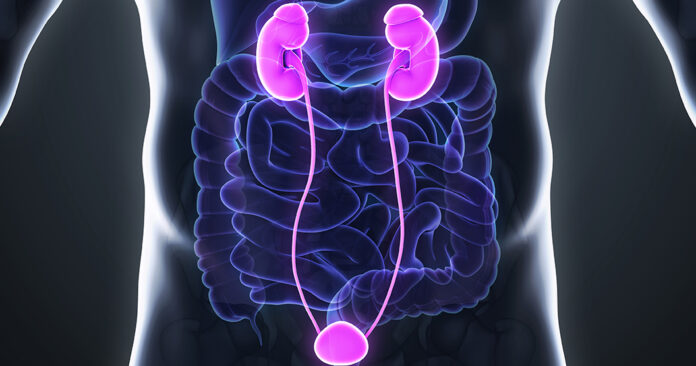Kidney stones are a common problem affecting men and women, but women tend to experience unusual symptoms and risk factors. While the prevalence of kidney stones is lower in women than in men, females tend to develop stones at an earlier age and often present with more complicated cases.
The signs and symptoms of kidney stones in women can vary from those experienced by men and are often mistaken for other conditions, delaying proper diagnosis and treatment. Therefore, women need to seek the best nephrology hospital in Hyderabad if they experience symptoms of kidney stones, as prompt diagnosis and treatment can help prevent complications and improve outcomes.
In this article, we will understand the symptoms and risk factors of kidney stones in women. We will also discuss the conditions of kidney stones during pregnancy and treatment tips for kidney stones.
What Are Kidney Stones?
Kidney stones are hard, crystalline deposits in the kidneys or urinary tract when certain minerals and other substances in the urine become too concentrated. The stones can vary in size, shape, and composition and can cause severe pain when they move through the urinary tract.
The most common kidney stones are made of calcium and oxalate, but other types, such as uric acid and struvite stones, also occur. Kidney stones are a common medical condition that affects both men and women, but women can experience unusual symptoms and risk factors.
Symptoms Of Kidney Stones In Women
As mentioned earlier, stones can develop anywhere in the urinary area, from the kidneys to the urethra. However, when the stone is inside the kidney, it is usually silent, and the patient may not experience any symptoms unless the stone is large. In such cases, the stones are often discovered during routine health check-ups or ultrasound scans for some other purpose.
However, when the stone detaches from the kidney and drops into the tube that connects the kidney to the bladder, called the ureter, the person develops sudden and severe pain that usually starts from the flank and can radiate to the genitalia. This intense pain is known as Renal Colic, and the person may also have blood in their urine, which is termed hematuria. The reason for the pain is that the stone blocks the urine flow on that side, causing discomfort and inflammation.
Infection can worsen the condition, leading to other complications. This requires prompt medical attention. On the other hand, stones in the bladder typically cause pain, blood in the urine, and difficulty in passing urine. Understanding these symptoms and seeking medical attention promptly can help prevent complications and ensure the timely management of urinary stones.
Risk Factors Of Kidney Stones In Women
A combination of various risk factors can cause urinary stones. There are endogenous (internal) risk factors such as age (between 40-60), gender (men have a higher risk than women), and genetics. However, exogenous (external) risk factors are even more important in contributing to urinary stone formation. For instance, people living in hot and dry environments have a higher risk of developing stones due to climatic conditions.
Dietary factors also play a crucial role in urinary stone formation. Low water intake is the most common nutritional factor that leads to stone formation. Additionally, the consumption of high amounts of salt and animal protein has been proven to cause urinary stones. Obesity has also been related to an increased risk of developing urinary stones.
The most ordinary constituent of urinary stones is calcium, with calcium oxalate being the most common type of stone. However, other urinary stones include uric acid, infection-related, and phosphate stones. Understanding these risk factors and their impact on stone formation is crucial in preventing and managing urinary stones.
Kidney Stones During Pregnancy
Kidney stones are a common medical condition that can affect women during pregnancy. Generally kidney stones tend to occur most frequently during the second or third trimester. Pregnancy can increase the risk of kidney stones due to changes in hormonal levels, increased pressure on the urinary tract, and changes in diet and fluid intake. Women who have had kidney stones issue before pregnancy are also at risk of developing them during pregnancy.
One of the most common indications of kidney stones is experiencing pain in the upper abdomen or back and sides, which may spread to the groin or lower abdomen. Other symptoms include nausea, vomiting, urinary urgency and frequency, and blood in the urine. During pregnancy, kidney stone formation can occur due to changes in a woman’s body, with the bladder squeezed by the growing fetus during late pregnancy. Kidney stones can cause complications such as urinary tract infections, preterm labor, and premature delivery if left untreated.
Treatment Tips For Kidney Stones In Women
Women’s treatment of kidney stones depends on various factors, such as the size and position of the stone, the severity of the symptoms, and the patient’s overall health. Treatment options for kidney stones include medication, shockwave lithotripsy, ureteroscopy, and percutaneous nephrolithotomy.
Sometimes, drinking plenty of fluids and taking pain relievers may be sufficient to pass small stones. However, for larger stones, medical intervention may be necessary. Shockwave lithotripsy uses shock waves to break up the stone into smaller pieces that can be passed through the urine. Ureteroscopy involves inserting a thin scope into the urinary tract to locate and remove the stone. Percutaneous nephrolithotomy involves making a small incision in the back to remove the stone.
In addition to medical treatment, lifestyle changes such as increasing fluid intake, reducing salt intake, and avoiding foods high in oxalate may help prevent the formation of kidney stones in women. Women with kidney stones need to work closely with their doctors to determine the best treatment plan for their needs.
Kidney stones during pregnancy can be diagnosed and treated safely, with little risk to the mother or infant. Most kidney stones move through the body, mainly if they are small. Larger stones may need to be treated. If left untreated, kidney stones can cause early labor or interfere with normal labor, posing a health risk to the infant.
Treatment for kidney stones during pregnancy can range from bed rest, pain medications, and enough fluid intake to inserting a tiny telescope called a ureteroscope into the bladder and kidney to remove or break up a stone. In addition, regular follow-ups with a doctor can help monitor the progression of kidney stones and ensure that appropriate treatment is being provided.
Final Words
Kidney stones are a common condition that can cause severe pain and discomfort for those affected. Women may experience unique symptoms and risk factors that should be understood and addressed. By identifying these factors, such as pregnancy and hormonal changes, dietary habits, and genetics, women can take steps to reduce their risk of developing kidney stones. Women need to seek the best nephrology hospital in Hyderabad if they experience symptoms of kidney stones, as prompt diagnosis and treatment can help prevent complications and improve outcomes. With awareness and proactive management, women can effectively manage this condition and improve their quality of life.










![Anso FG Reviews: UPDATED 2024 [ansofg.com] Anso FG Reviews UPDATED 2024 [ansofg.com]](/wp-content/uploads/2023/12/Anso-FG-Reviews-UPDATED-2024-ansofg.com_-100x70.png)







